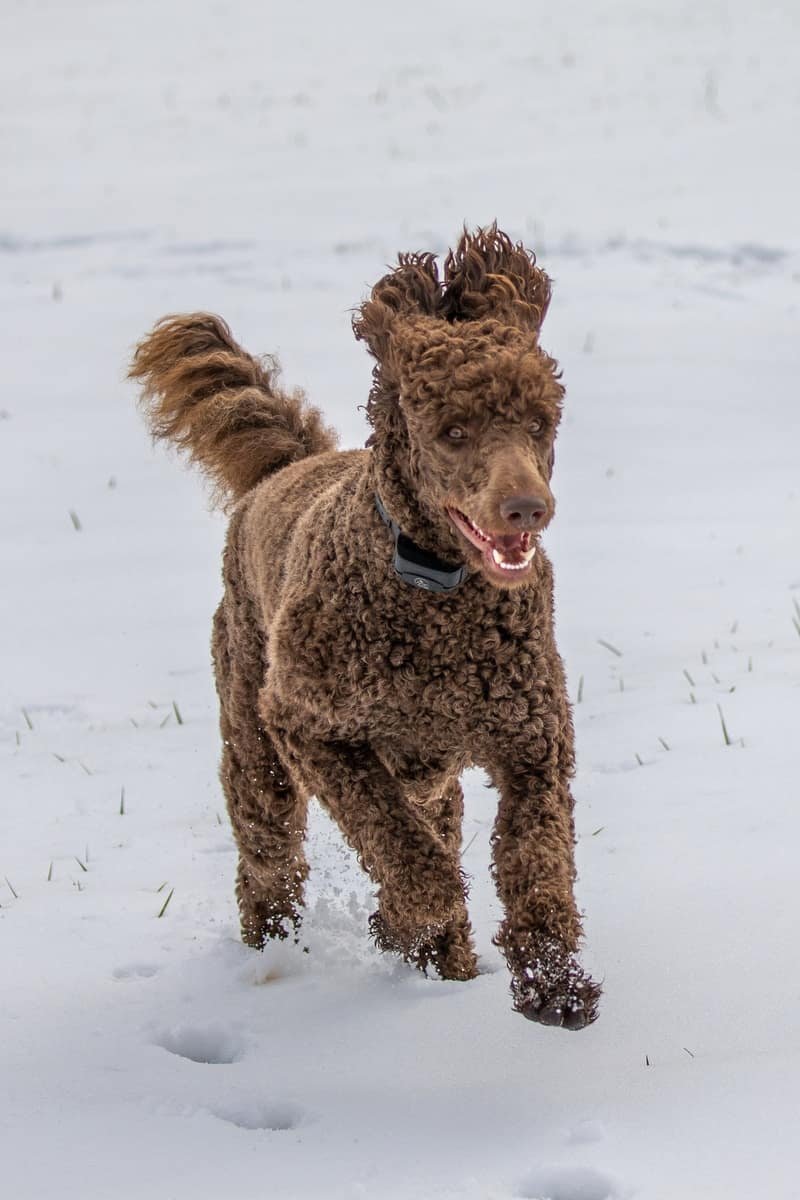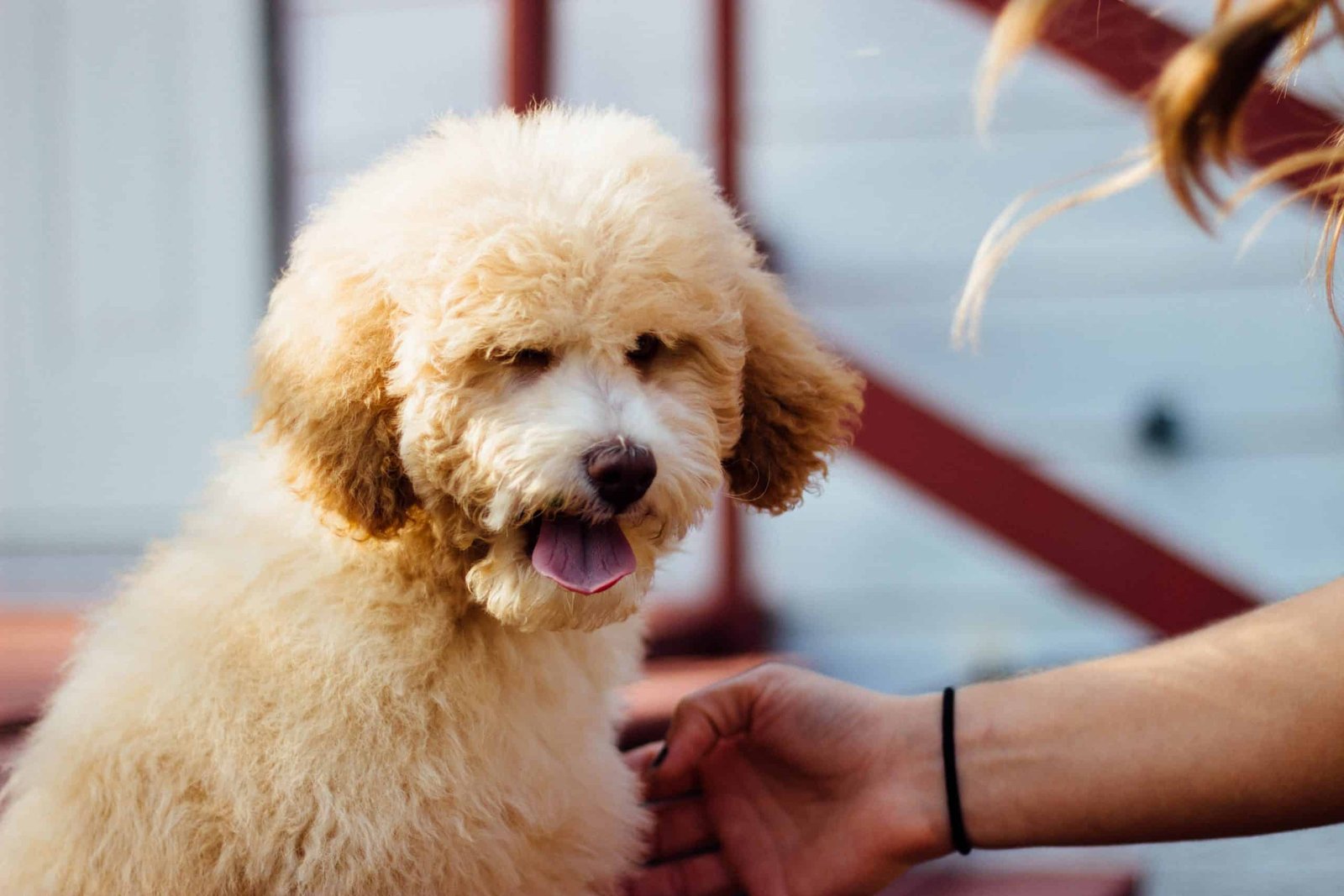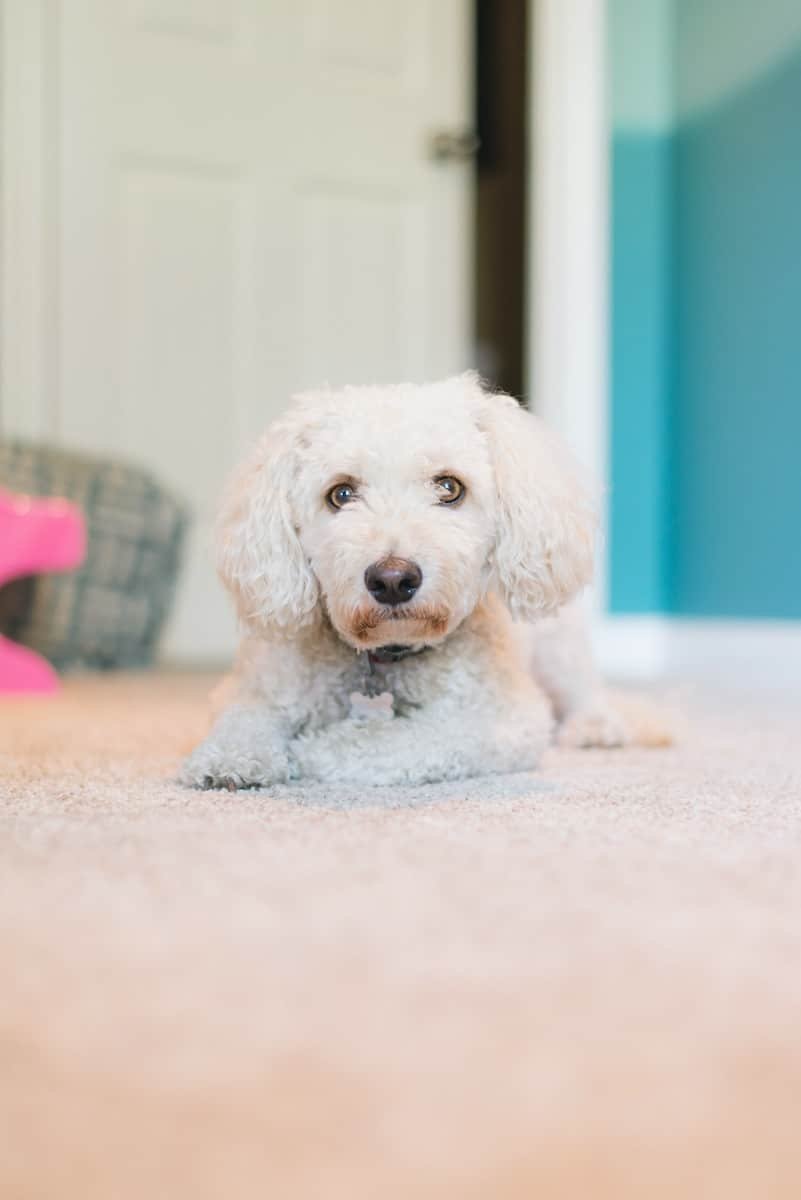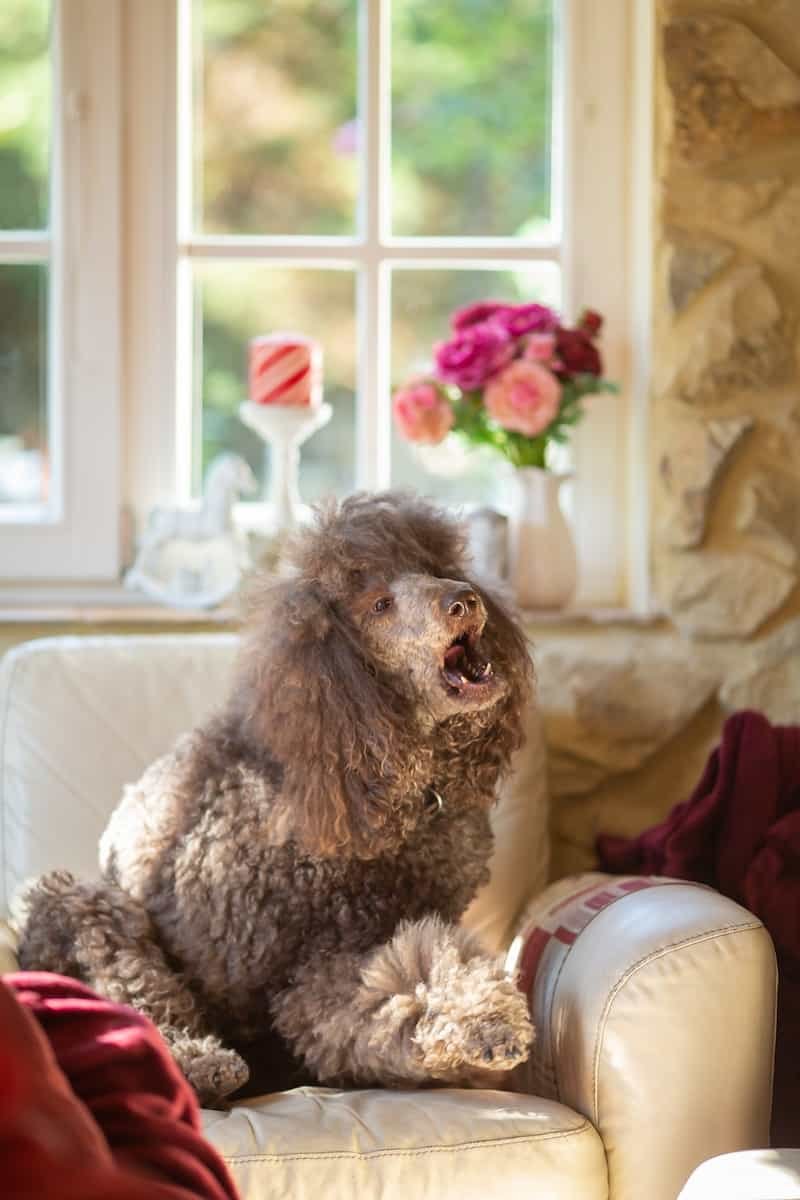So, you’re planning to adopt a rescue Poodle and give it another chance at a happier life. Congratulations!
However, if there’s one thing I learned about Poodle rescues or any rescue dog for the matter, it’s that they tend to have trust issues and poor canine behavior. That’s not something to worry about, as it’s normal for these poor dogs to feel scared, especially after the past experiences they’ve had to go through. Rescue dogs can show signs of fear, cowering in a corner once they head to their new home.
That’s why building trust is an absolute must. But how can you do that? We show you effective ways to help your rescue Poodle trust and love its new family!
Slow Down
One grave mistake new pet owners commit is how they move too quickly. The moment people bring their Poodle rescue home, they start expecting their dog to love them and follow the routine. Some owners would immediately try cuddling the rescue dog and make sudden movements, which can frighten it, thus ruining any trust.
Furthermore, people tend to move too quickly, literally. Before standing up quickly, running, lifting your arms, or making any other alarming movements, Experiment getting your dog’s attention subtly, for example, sighing. That way, your rescue Poodle can anticipate your actions and not feel as scared.
Throughout building trust, the primary goal is never to surprise the Poodle rescue.
Avoid Eye Contact
Direct eye contact, especially sustained ones, is a threat to animals. Dogs find it scary when someone stares at them head-on. Instead of approaching your Poodle rescue head-on, please do so in an arc. Don’t look at its eyes for too long.
Offer Your Side
Easily-scared dogs feel more comfortable approaching their owners when they kneel with their sides or bach to them. It’s an indirect approach that dogs see as more “polite,” as approaching dogs head-on seems more direct and threatening.
That said, do not turn your back on potentially dangerous and aggressive rescue dogs. I suggest assessing the situation deciding on what you feel is best.
Less Noise is Good
You see dogs having positive experiences with baby talk and receiving attention. However, rescue dogs are easily scared, feeling less receptive to noises and people talking, even when they exhibit friendly behavior.
When interacting with your new Poodle rescue, try using a quiet tone of voice first. Soft baby-talking in soothing tones can work, then observe how your dog responds; if your Poodle’s ears perk up and start thumping its tail, then great! But if your dog has an adverse reaction to soothing voices, then stop doing it.
Instead of talking, give your dog a quiet space and stay nearby. Use your body language to let your Poodle rescue know you aren’t a threat. Don’t make any sudden noises (like start the vacuum cleaner) or move too quickly. Again, give your Poodle a complete sense of safety to reduce its fear level.
Observe Closely
It’s imperative to watch your Poodle rescue, responding to what you see in it. If a specific movement would make your Poodle’s pupils dilate, have it move backward, flare the whiskers, or spark a signal, then don’t do it. But if you notice your dog waggings its tail, softening its eyes, or moving forward, reward your Poodle, such as a delicious treat.
Unfortunately, many people would reward nervous dogs’ bravery through loud praises, cuddling, and petting. All that physical contact is too sudden, which can backfire. Instead, allow your Poodle to do the talking, making the moves. Please give it a rewarding experience through a handful of treats and let the human touch wait for another time.
Allow Your Poodle to Approach You
Most people tend to approach scared dogs too quickly without knowing. It’s best first to ignore your Poodle unless you’re playing games together. That doesn’t mean to ignore your dog flat-out and forget basic training or feeding high-quality dog food! It means to wait until your dog approaches you rather than the other way around.
If your rescue dog approaches you, give it treats to reward its bravery. Again, don’t turn to your dog and pet or praise it. If your dog tries engaging with you, then give more rewards! But if it keeps the distance, that’s fine as well. Don’t try to chase attention and interaction, which is the complete opposite of building trust.
Plate Game
The Plate Game is an interesting way to help your dog gain trust with you. It can also be part of one of your training exercises!
The game is simple. Place a food bowl on the ground between you and your Poodle. Please place it in a familiar spot your dog feels comfortable in, but not too close to the dog that it will feel scared as you approach it with the bowl.
Once you and your dog are between the food bowl, drop or throw high-value food or treats, then back away. Let your dog walk to the food and enjoy the treat.
Take a break, then repeat the game. Through doing that, your dog will have positive associations with you, thinking that approaching you will mean more treats without anything terrible happening.
Treat and Retreat
Treat and Retreat is another popular game with positive training methods. It’s also similar to the Plate Game but more dynamic, introducing more difficulty.
If your dog looks or moves towards you, throw a tasty treat behind it. Your dog will turn around to get it, then ideally turn back to you to receive another treat. It’s best to play this game when you’re stationary, like sitting down.
This game will teach your Poodle rescue to approach you then get treats. Your Poodle will also learn that it can go away when feeling nervous, reducing any risk of fear-based or defensive aggression.
Do not try to lure your Poodle in with a treat, then try to pet and cuddle it. That’s a huge no-no, and your dog will end up feeling scared and pressured, even lashing out.
Rather than doing that, allow the treats to act as motivators to push your Poodle in an ideal area outside its comfort zone yet still considered safe. The goal with Treat and Retreat is to bring your dog outside its comfort zone enough, but not to the point it will feel frightening or overwhelming.
Pat-Pet-Pause
After you get your rescue dog to approach you, the next step is building more trust and a complete sense of safety when petting it. The pat-pet-pause can improve your Poodle’s love for petting and cuddles.
The game is simple. Begin by patting your knees calling your Poodle over. Afterward, gently pet under its chin, chest, or butt. Never pet on the head or belly, which your dog will find intimidating.
After petting your dog for three seconds, pause and put your hands on your lap. Observe what your dog will do. If your Poodle comes back for more pets, repeat the process. If not, then that’s okay; stop the game and try it again another time. For Poodles who stay put but have a neutral body language, pet it again in a different way, such as going for another safe body part.
You can also refer to this video for more of an idea to build trust with rescue dogs: https://www.youtube.com/watch?v=TmFIeME7tMs
Was Your Rescue Poodle Abused?
Unfortunately, puppy mill dogs and shelter dogs have most likely lived a life of abuse and abandonment. These dogs have gone through far more than we can imagine, with most puppy mills and shelter dogs being undersocialized and victims of animal cruelty.
An abused dog’s fear level is way higher, as they tend to flinch away from any form of human touch and scare easily. Furthermore, most of these dogs would display many behavior issues, such as peeing themselves, rolling onto their backs, groveling with bent knees, lip-licking, and fast-wagging tails (this doesn’t signify happiness)! The entire world is a frightening place to these dogs, and they can trust no one.
While the tips I mentioned above can help build your abused dog’s trust, there are more precautions you should take.
Remember that abused dogs are terrified of the following:
- Loud noises
- Fast movements
- Someone approaching them head-on
That said, compared to undersocialized dogs, abused dogs usually won’t have issues with things like shiny floors, blenders, or cars passing by. But still, avoiding any of the situations above, giving your dog a safe space.
Be patient and continue giving your abused rescue Poodle a tasty treat, plenty of space, a consistent routine, and a sense of security. Over time, your rescue Poodle will warm up to you quickly.
Also, please remember that some abused rescue Poodles are afraid of specific kinds of people. However, most dogs fearful of people of color, men, or people in hoodies may not have experienced abuse! Dogs aren’t racist or sexist; they were more likely under-socialized and got used to living with certain people without any socialization with others.
Furthermore, some dogs may feel afraid of men because they appear scarier and bigger than women. If most volunteers from animal shelters are women, then the rescue dogs haven’t had as much exposure to men.
Fortunately, even if you have an older rescue Poodle, it’s possible to socialize it and correct the fear. It takes time, a handful of treats, and slow introductions to familiar people and animals!
Take a look at this video on approaching a formerly abused dog: https://www.youtube.com/watch?v=cNElHkkWylM
I Have an Aggressive Poodle Rescue!
The tips mentioned above can help with an aggressive rescue Poodle. However, the stakes rise as there’s the chance your rescue Poodle can bite. While all dogs bite when pushed, it’s best not to risk it.
Try working with a professional trainer when you have an aggressive Poodle rescue and adding extra safety measures.
For example, if you plan on playing games, make sure your Poodle rescue wears a comfortable basket muzzle and tie-back. You might also want to start with a barrier (like a pet gate) when playing games like Treat and Retreat, building rapport before taking your rescue dog out.





